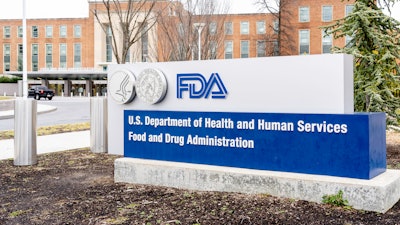
The FDA has issued a Class I recall for Smiths Medical CADD infusion system Administration Sets and Cassette Reservoirs. The recall impacts 19,792,933 devices distributed in the U.S. from June 15, 2018 to the present.
CADD ambulatory infusion systems deliver controlled amounts of medications to patients in hospital, outpatient, and home settings. The CADD Administration Sets and CADD Medication Cassette Reservoirs are disposable and intended for use with CADD infusion pumps. They deliver the medication into a patient’s vein or through other cleared routes of administration.
Reason for Recall
Smiths Medical is recalling certain CADD Administration Sets and Medication Cassette Reservoirs for two potential issues:
- Tubing occlusion prevents delivery or causes under-delivery of medication. Manufacturing variations may cause the green CADD Flow Stop arm to compress and partially block (occlude) the tubing before clinical use. If the occlusion does not resolve when an affected reservoir or administration set is connected to the pump, the pump may not detect the occlusion, resulting in under-delivery or non-delivery of medication, though the pump will display that the infusion is running properly.
- False “No Disposable Attached (NDA)” alarm prevents pump use. Manufacturing variations on certain CADD Medication Cassette Reservoirs with Flow Stop may interfere with the pump detecting a properly attached CADD cassette. The pump will give an audible warning. If the audible warning is not resolved within two minutes, an NDA alarm will occur. The user must clear the alarm and resolve the cause of the NDA event before using the pump, resulting in the delay or interruption of therapy.
Either of these recall issues can cause delay of therapy, interruption of therapy, or under-delivery of medication, which all have the potential to cause serious patient harm or death.
Smiths Medical reports there have been 1,571 incidents, 14 injuries and 2 deaths related to the tubing occlusion issue and 9,101 incidents, 11 injuries and no deaths related to the false NDA alarm issue.






















